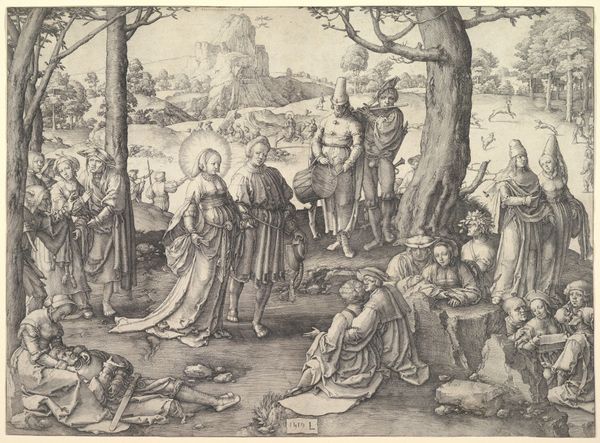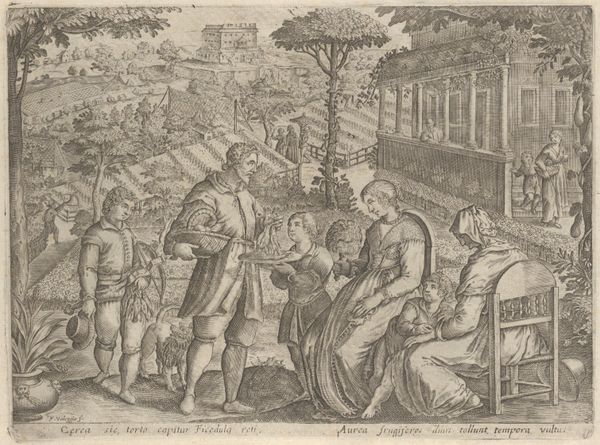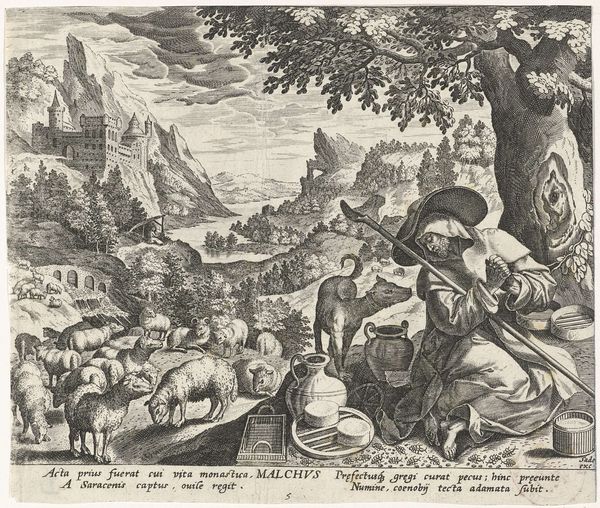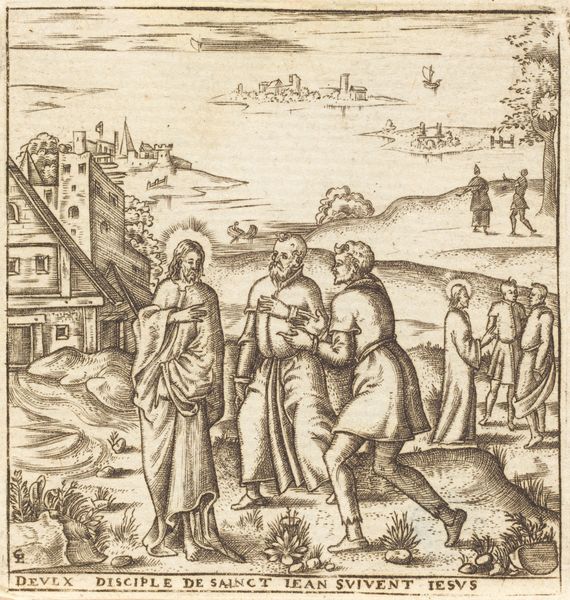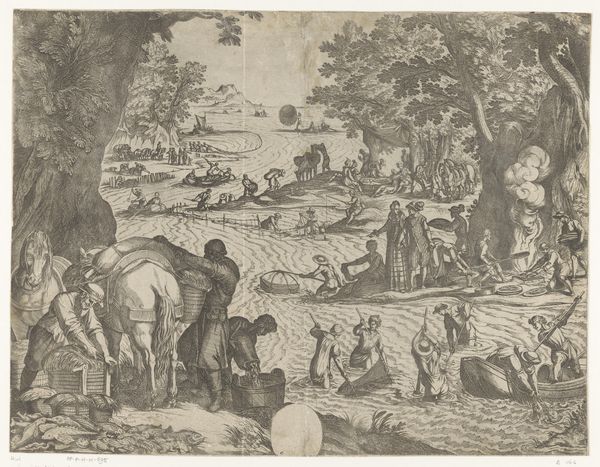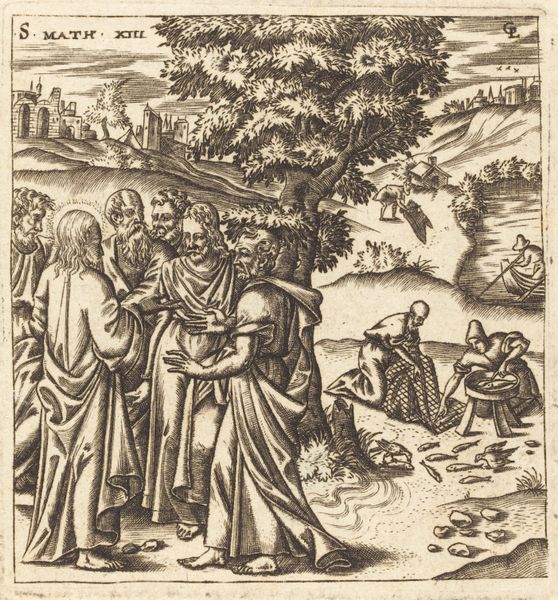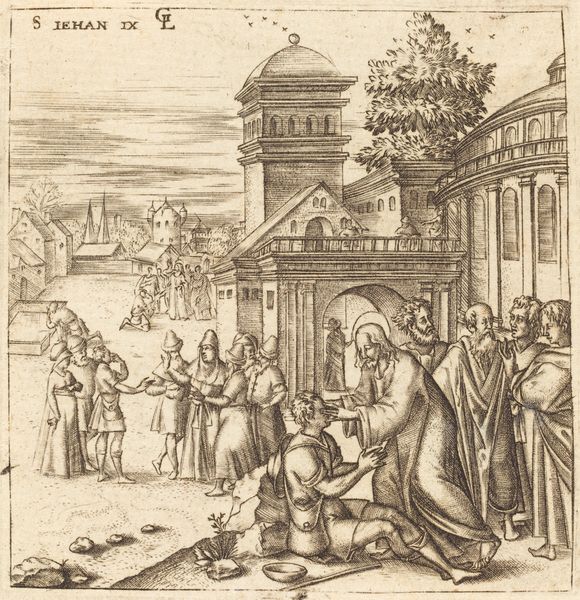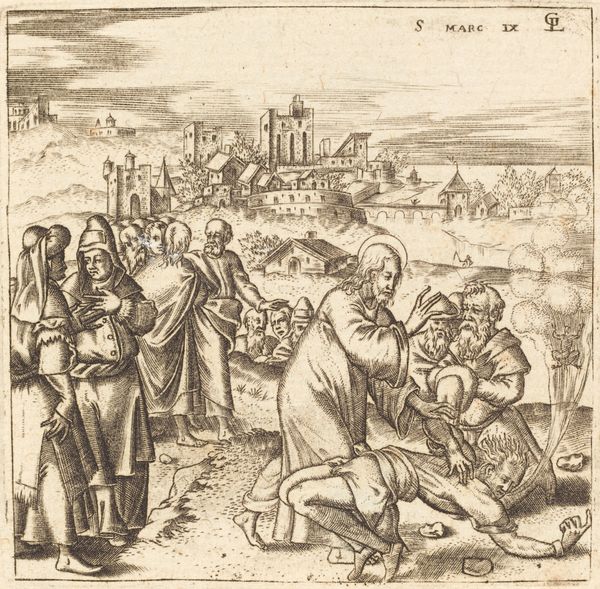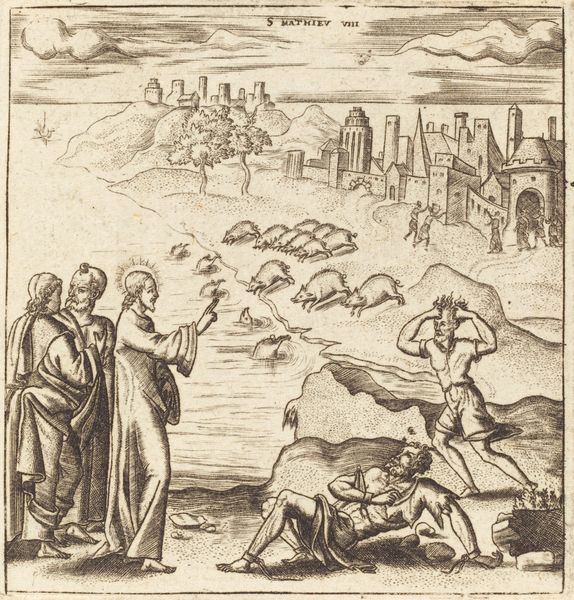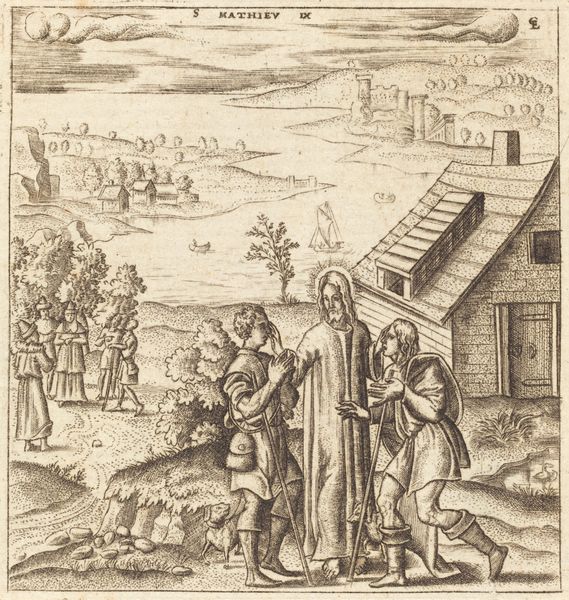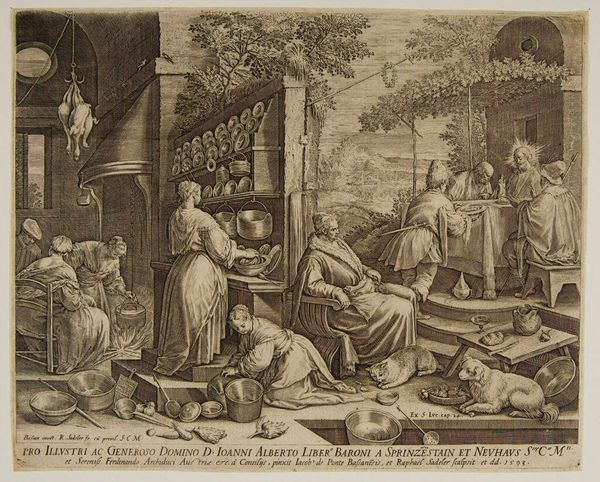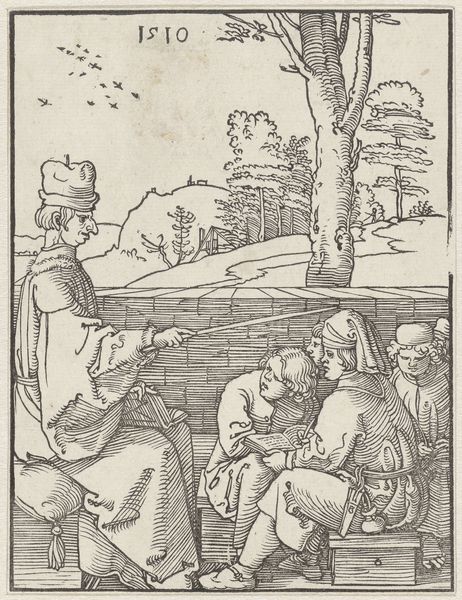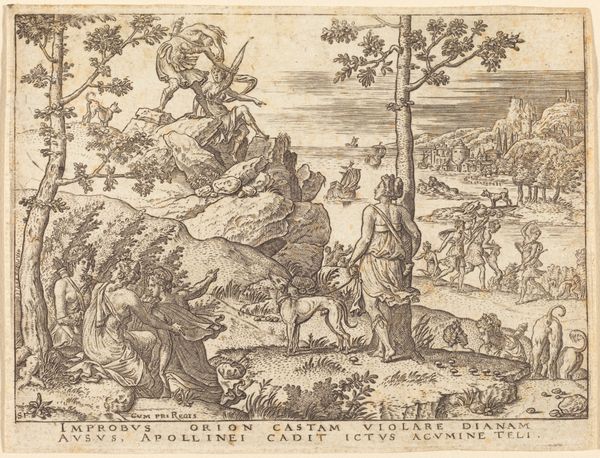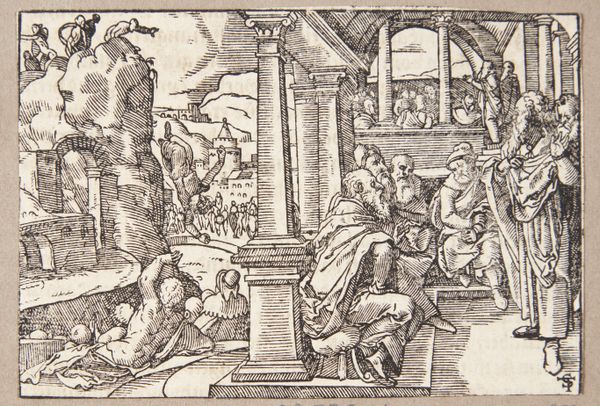
tempera, painting
#
medieval
#
narrative-art
#
tempera
#
painting
#
landscape
#
oil painting
#
watercolour illustration
#
history-painting
#
international-gothic
#
miniature
#
watercolor
Copyright: Public domain
Jean Fouquet made this illumination for a manuscript of Boccaccio's Decameron around 1470, using pigments on parchment. Fouquet was unusual for his time, in that he traveled to Italy and integrated Renaissance ideas into his work. Consider the ultramarine blue in this scene, derived from lapis lazuli imported from Afghanistan. Grinding the stone to achieve this brilliant color was labor-intensive and costly, and the result conveys the wealth and power of the patron who commissioned this work. The sheer amount of work involved in preparing the parchment, mixing the paints, and applying the meticulous details must have been considerable. The illumination would have required skilled hands, and many hours. But also notice how the activity in the foreground - a group of prostrate people apparently drinking from a stream – is rendered with as much care as the scene of the beheading. It’s a reminder that the ‘big picture’ depends on countless tiny actions. Appreciating the intense labor of the artist allows us to recognize the full social and cultural context of this exceptional painting.
Comments
No comments
Be the first to comment and join the conversation on the ultimate creative platform.
